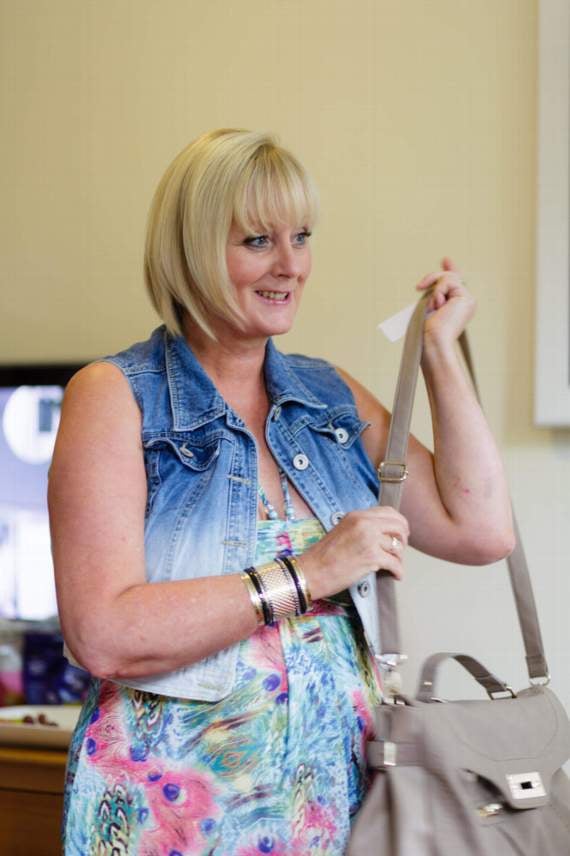The family of a Manx women who died of cervical cancer after her test results came back as normal is calling for justice.
Julie O’Reilly, a 60-year-old originally from Douglas, was one of 221-plus women caught up in the CervicalCheck scandal in Ireland.
She was the 19th person of 20 to have died after finding out that their smear tests had been read incorrectly.
The mother of four children, all born in the Isle of Man, died last month only 18 months after she had been diagnosed with cervical cancer. This was five years after the last of her smear tests which she was told were normal.
’In effect from 2009 my wife had cancer,’ her husband Tony O’Reilly said.
’If it had been treated then things would be different. We want people to be accountable for what happened.
’We want justice for Julie.’
Mr O’Reilly explained that he has been left feeling ’very saddened and angry’ about the family’s loss and about the situation which had led to her sudden death.
’She was a beautiful person on the inside and the outside. There’s a great void in our lives,’ he said.
’I believe there are more people in a similar situation and it’s not been reported.
’Those poor women who are still alive and have seen the 20 women who have passed away are are left thinking the worst. It’s disgusting putting them under pressure.’
Controversy
The controversy began after 43-year-old mother Vicky Phelan went public once she settled a High Court case against a US laboratory which was subcontracted by the Irish national cervical screening programme CervicalCheck to assess the tests.
Her smear tests had been incorrectly read and she revealed that other women had also been impacted.
She settled her own legal action for â?¬2.5m.
Describing Julie as a private person, Mr O’Reilly explained why his wife’s story is only becoming public now.
He said: ’We watched on television how other women were treated when they went to court and it was atrocious. Julie said "I never want to go through that".
’Her passing was very sudden. It wasn’t something we were expecting.
’When we buried her we took off the gauntlet and thought "let’s go for it". Someone’s got to be answerable for this.’
The family chose the island as her final resting place, bringing her from Ireland to be buried in a family plot of land in Kirk Malew next to her grandma Kathleen May who was ’very special to her’.
’We made that decision to bring her home. It was the right thing to do,’ said Mr O’Reilly.
’She was very much a proud Manx girl. People would call her English or Irish, but no, she was Manx.’
The couple met both aged 16 at Isle of Man College while Julie was studying to become a secretary and Tony was studying catering.
They soon married and went to live in a number of countries before making their move to Ireland in 2007.
The couple had been married for 42 years. They have four children aged 22 to 42 and two grandchildren aged four and six.
Mr O’Reilly told the Manx Independent that Julie tried her best to visit her mother and sisters in the island as much as possible last year.
Loving
Julie’s younger sister Michelle Hawke, a Colby resident, says she shares her brother-in-law’s frustration but advises that women should continue taking smear tests.
’I do agree with Tony’s anger regarding the Irish health service missing four clearly abnormal smear tests and I do want to prompt awareness of the need for regular testing, but also the necessity of having those tests properly checked and verified to ensure no one has to go through the pain of losing a loved one like we have,’ she said.
She called Julie ’a loving mother, a devoted auntie and an amazing sister’.
’She was always there for us no matter what, even through her own illness she always made sure she was there for her nieces’ special occasions and always made sure she phoned her mum daily to see how she was and see if there was anything she needed,’ Mrs Hawke said.
’Julie was never one to seek the limelight and would be embarrassed to hear us talking about her like this. Although she obviously suffered a great deal she always bore her pain with grace and dignity and never complained.
’Julie was always positive, upbeat and optimistic and her bright smile and kindly words will be sorely missed by everyone that was lucky enough to have known her.’
She added: ’If this article has in any way touched a nerve with you or emotionally struck a chord I’d be grateful if you would make a donation to any Manx cancer charity or association in Julie’s name.’

.jpeg?width=209&height=140&crop=209:145,smart&quality=75)



Comments
This article has no comments yet. Be the first to leave a comment.